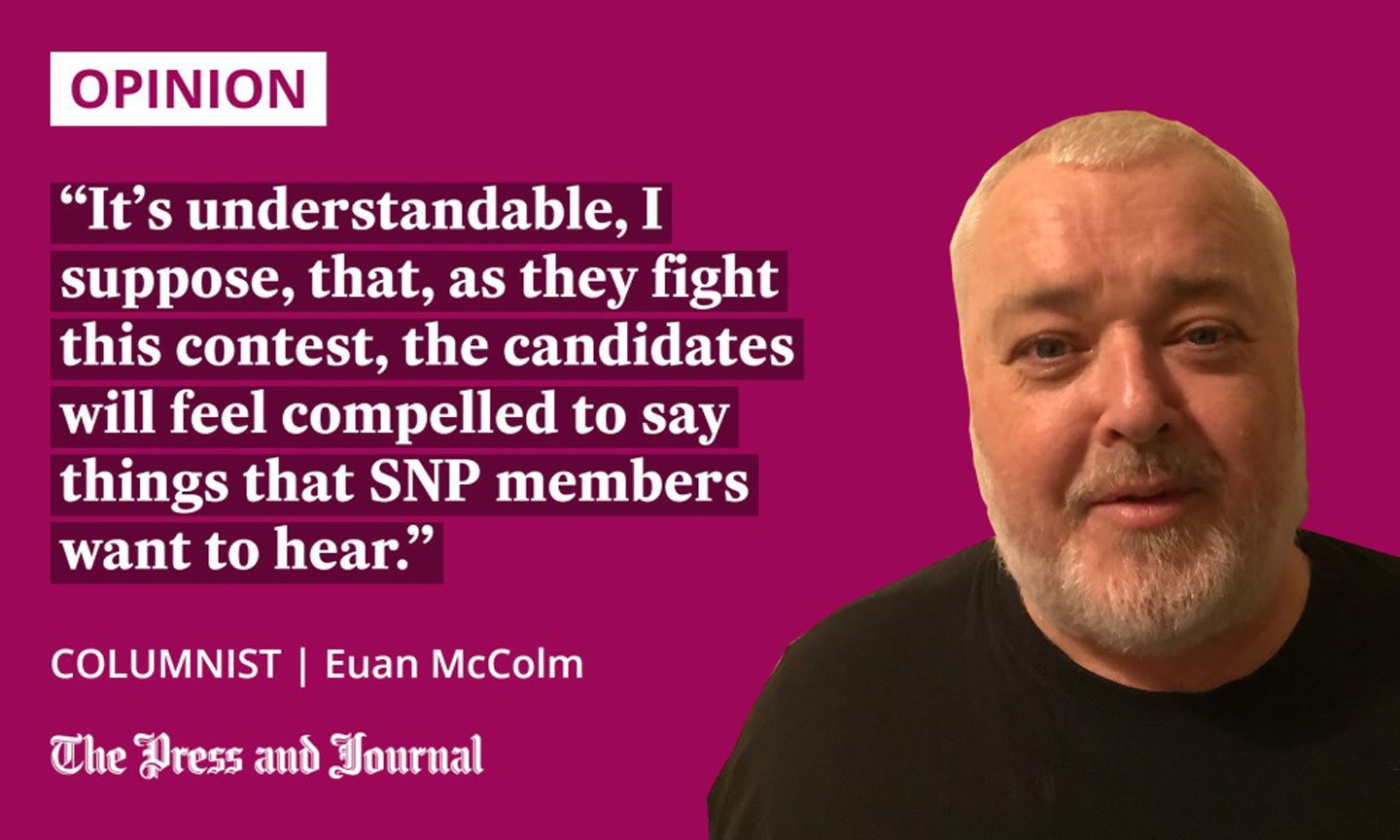Sturgeon’s successor will become leader of a party whose members will be perfectly entitled to expect independence within five years, writes Euan McColm.
As the fourth and final televised debate between the contenders to replace Nicola Sturgeon as SNP leader and first minister drew to a close, there was time for one last question.
“If you’re first minister,” asked a man in the audience of BBC Scotland’s Debate Night special, “Will Scotland be independent in the next five years?”
It was a simple enough question, to which there was a simple enough answer, which was: “No.”
Yet, not one of the trio of leadership hopefuls could bring themselves to be honest.
Humza Yousaf believed that, yes, Scotland would be independent by 2028. Likewise, Kate Forbes was convinced of this. And Ash Regan completed the set, promising she’d break up the UK within the timescale suggested.
Whoever wins this contest will come to regret their answer.

When she became first minister in 2014, after defeat for the Yes campaign in the independence referendum, Nicola Sturgeon made a mistake which would haunt her for the duration of her leadership: she misled nationalists about how difficult it would be to secure a second vote on the constitution.
Rather than levelling with SNP members and explaining that indyref2 would be a long time coming, she promised that another vote was within grasp. She maintained this “one more heave, lads” story throughout election campaign after election campaign, and her supporters lapped it up.
But Sturgeon knew she could not deliver what she promised. She knew the Scotland Act of 1998 – a piece of legislation backed by the SNP’s then six-strong House of Commons group, including Alex Salmond and John Swinney – made clear that the power to run a referendum belonged to Westminster, not Holyrood.
Pretending a referendum is just around the corner won’t do SNP any good
Eventually, Sturgeon could no longer outrun her inability to speak the truth to her supporters, and she drew up the flawed plan to treat the next general election as a “de facto referendum” which was so unpopular with colleagues that it likely contributed to the end of her leadership.
Sturgeon’s successor will become leader of a party whose members will be perfectly entitled to expect them to deliver independence within five years. That, after all, is what all three have said they will do.
It’s understandable, I suppose, that, as they fight this contest, the candidates will feel compelled to say things that SNP members want to hear. But indulging the delusion that a referendum is just round the corner isn’t going to do their party any good. Nor is it going to bring onboard the sort of cautious voters the SNP need to win over if it is to build a majority in favour of independence.
We’re left, now, with a deeply troubling question: if the next first minister can’t be honest with their own supporters, how can anyone expect them to be honest with the rest of Scotland?
Euan McColm is a regular columnist for various Scottish newspapers

Conversation